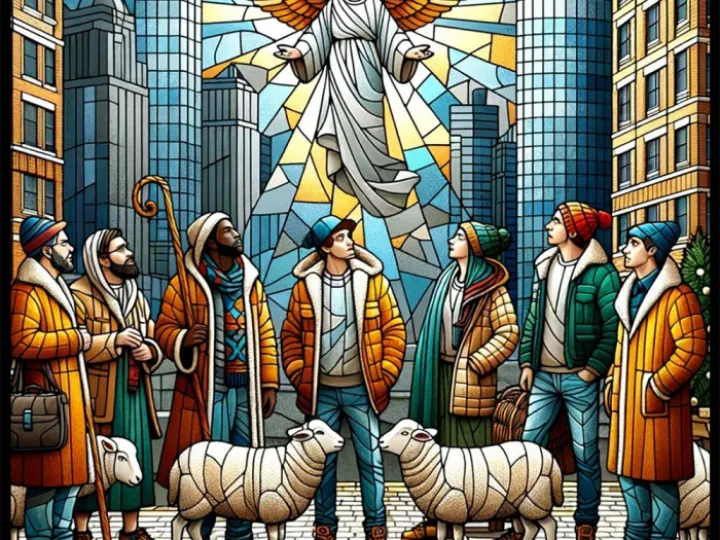Christmas Letter 2023
Dear friends,
Several years ago I was a member of the Ebor Lectures committee responsible for a series of lectures on public life and theology at York Minster. The lectures drew widely across religious, political and cultural life and one day I was tasked with picking up Roy Hattersley, the former Deputy Leader of the Labour Party, and escorting him to the Minster. As we drew into the car park, a member of the Minster police, clearly annoyed, told me to turn around and go away; there were no spaces for members of the public in a private car park. Almost immediately you might think of a parallel with no room at the inn, but as soon as the security guard saw Lord Hattersley sat next to me in the car, he suddenly changed his tune and started to grovel: 'Oh, Lord Hattersley, we've been expecting you. Please come this way. Do park here.'
We've been expecting you. A perfect description of the movement from Advent to Christmas! I was reminded of that meeting with Roy Hattersley when the other day, I quite unexpectedly came across one of his quotes. Familiarity with evil does not breed contempt as we might think, he said, but acceptance. The past year is one in which we may have felt overwhelmed by the deluge of images on the news of war and violence, destruction of the planet and hostility towards the stranger. It's perhaps not surprising that many people feel numb or impotent in the face of so much that is wrong in our world. Do we simply accept this or does the birth of a child, Immanuel, God with us, offer us a different way?
You may be aware that the Christmas lights will not be switched on in Bethlehem this year. The mood is a subdued one in memory of people on all sides affected by the hostilities in the Holy Land. As an act of solidarity with the churches in Bethlehem, many Methodist churches are leaving the second Advent candle unlit this year. It's a reminder that whilst we celebrate the light of Christ coming into the world, evil continues to flourish in many places.
But the story of Jesus' birth is a testimony to light entering our world and overcoming the darkness. We have become so familiar with the story and the way it has been distorted through our cultural lens that we miss what is most obvious about it. Jesus is born into a land that is occupied. The holy family are forced to journey to register by imperial command. A client king, Herod will massacre infants. The holy family will be forced to flee, to become refugees. In the face of evil they are vulnerable, fragile, clinging onto survival. Sound familiar?
But this human story is also God's story. It is a testimony to God's patience and long view. Hundreds of years before Christ's birth a prophet, Isaiah, had seen this day, and the choirs of angels who sing in the sight of the shepherds in Luke's version of the story, seem to testify that the whole of creation has been waiting for this moment. And this Jesus will grow up to face evil not by the use of force but by way of a cross. This seemingly paradoxical act shows up our cycles of violence and destruction for what they are, yet transforms evil one act at a time in works of love, hope, protest, faith, forgiveness, and reconciliation.
Our familiarity both with the Christmas story and stories on the news should not be allowed to breed acceptance, nor cynicism, nor contempt. It calls us instead to follow a patient God, God with us, and to transform our world, one act of love at a time.
May God bless you, your loved ones and your neighbours as we celebrate the birth of Jesus, the Word made flesh.
Peace and light,
Revd Richard Andrew
Chair, Darlington District

